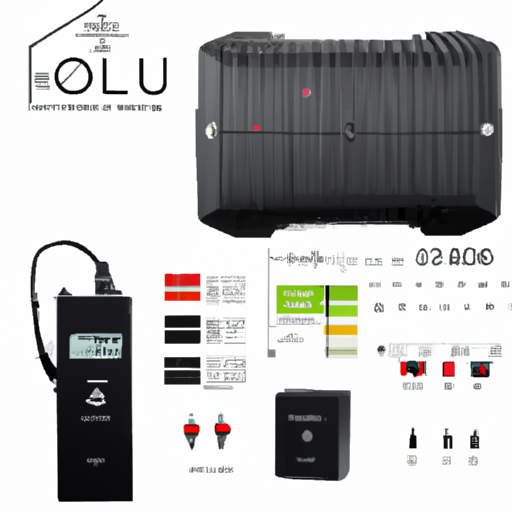
Resistors are one of the most basic components in electronic circuits, with the main function of limiting current flow, dividing voltage, and adjusting the working state of the circuit. Whether in simple household appliances or complex industrial equipment and high-tech products, resistors play a crucial role. With the continuous development of electronic technology, the performance and application range of resistors are also expanding.
When purchasing resistors, engineers and procurement personnel face various challenges, including a wide range of models in the market, rapid technological updates, and price fluctuations. However, this also provides opportunities for companies to enhance product performance and competitiveness by selecting the right resistors.
This article aims to explore the latest purchasing models of resistors, analyze market trends, recommend specific models, and provide considerations for purchasing. By gaining a deep understanding of resistors, readers can make wiser decisions during the procurement process.
A resistor is an electronic component that can limit the flow of current, with its main function being to provide a specific resistance value to control the current and voltage in the circuit. The working principle of resistors is based on Ohm's Law, where current is directly proportional to voltage and inversely proportional to resistance.
Resistors can be classified according to different standards, including the following categories:
Fixed resistors are resistors whose resistance value is determined during manufacturing and does not change during use. Common fixed resistors include carbon film resistors, metal film resistors, and wirewound resistors.
Variable resistors allow users to adjust the resistance value as needed, with common types including potentiometers and rheostats. They are widely used in volume control, brightness adjustment, and other applications.
Special resistors include thermistors, photoresistors, etc., whose resistance values change with temperature or light intensity, widely used in temperature sensors and light sensors.
With the continuous advancement of electronic technology, the design and manufacturing processes of resistors are also constantly improving. For example, using advanced materials and manufacturing techniques can improve the accuracy and stability of resistors to meet the requirements of high-performance electronic devices.
The application of new materials has significantly improved the performance of resistors. For example, using nanomaterials and conductive polymers can produce smaller, lighter, and more efficient resistors to meet the requirements of modern electronic products for miniaturization and high performance.
With the increasing environmental awareness, many companies have begun to use environmentally friendly materials and processes in the production of resistors to reduce environmental impact. At the same time, market demands for sustainable development are driving resistor manufacturers to innovate and develop more environmentally friendly products.
In the resistor market, many well-known brands offer high-quality resistor products. Here are some common brands and their models:
Vishay is a global leading manufacturer of electronic components, known for its high precision and reliability in resistor products.
Yageo is a Taiwanese electronic component manufacturer, offering a variety of resistor types widely used in consumer electronics and industrial equipment.
Panasonic, as a well-known electronics manufacturer, has been widely recognized for the performance and quality of its resistor products.
Bourns focuses on providing high-performance resistors and other electronic components, widely used in communication, automotive, and industrial control fields.
Here are some specific model recommendations for the latest resistors:
This resistor has high precision and low temperature drift characteristics, suitable for high-demand electronic devices.
This Yageo resistor has good stability and reliability, suitable for use in consumer electronic products.
This Panasonic resistor is favored for its compact design and high power rating, suitable for applications with limited space.
This variable resistor is suitable for applications that require adjusting resistance values, such as audio devices and sensors.
Each model of resistor has its unique characteristics and application scenarios. For example, Vishay CR060310K00K is suitable for high-precision measurements, while Yageo RC060310K0F is more suitable for mass-produced consumer electronic products. Understanding these characteristics can help procurement personnel choose the most suitable resistors.
When purchasing resistors, it is essential to consider the following key parameters:
Choosing the appropriate resistance range is crucial based on the requirements of the circuit design. Different application scenarios have different requirements for resistance values, and procurement personnel need to choose accordingly.
The power rating of a resistor determines the maximum power it can withstand, and when choosing, ensure that the power rating is higher than the actual power generated in the circuit.
The temperature coefficient refers to the degree to which the resistance value changes with temperature. Choosing resistors with a low temperature coefficient can improve the stability of the circuit.
Choosing reliable suppliers is crucial to ensure the quality and delivery time of resistors. Procurement personnel should comprehensively evaluate the supplier's reputation, product quality, and service.
Reasonable delivery time and inventory management can effectively reduce procurement costs and ensure the smooth operation of production lines.
Cost control is an important factor to consider when purchasing resistors. Procurement personnel should choose resistor models based on the budget to ensure cost-effective procurement while meeting performance requirements.
With the development of smart and digitalization technologies, the application of resistors is also evolving. In the future, resistors will be combined with smart sensors, IoT devices, etc., to provide more efficient solutions.
The rapid development of IoT and 5G technologies provides new opportunities for the application of resistors. Resistors will play an important role in smart homes, smart transportation, industrial automation, and other fields.
To meet market demands, resistor manufacturers need to continuously innovate and invest in R&D to develop higher-performance, more environmentally friendly resistor products.
When purchasing the latest resistors, it is important to consider the basic concepts of resistors, market trends, specific models and their characteristics, purchasing considerations, and other aspects. By gaining a comprehensive understanding of relevant information about resistors, companies can make more informed decisions during the procurement process.
In the future, the resistor market will continue to evolve with technological advancements and developments in emerging application areas. Companies should keep up with market trends, seize opportunities, and enhance their competitiveness.